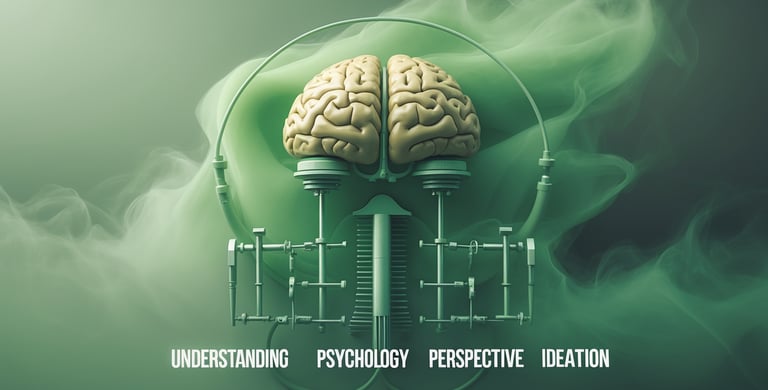Cognitive Dominance in the Age of Information Overload
Heuristic Patterning, Nonlinear Logic, and the Epistemological Duel Between Instinct and Insight
4FORTITUDEU - UNDERSTANDING, COGNITION, PSYCHOLOGY, PERSPECTIVE
Cognitive Dominance in the Age of Information Overload
Heuristic Patterning, Nonlinear Logic, and the Epistemological Duel Between Instinct and Insight
“The heart has its reasons, which reason does not know.” — Blaise Pascal
Introduction
The alert blinked red for less than a second.
No time to gather facts. No time to reason. Just one flicker in the corner of his eye—then his hand moved, body dropped, threat neutralized.
Later they called it “instinct.” He called it warrior memory—the kind no school teaches but every survivor depends on. In that moment, the intellect had been too slow. It wasn’t an absence of logic—it was a superlogic, forged by exposure, repetition, and readiness.
In the Age of Overload, men drown in data and starve for discernment. Information expands; clarity withers. What survives is not the one who reads most—but the one who reacts first with right precision.
To thrive now is to wield cognitive sovereignty—the ability to make rapid, correct decisions under conditions where most hesitate or self-destruct.
Instinct or insight. Blink or think. There is no neutral.
The battlefield is every moment.
Core Knowledge Foundation
Information overload is not just quantity—it’s a crisis of filtering.
And filtering is not a luxury—it is survival.
Three pillars of sovereign cognition emerge:
Heuristic Patterning – The brain’s fast-twitch filter, built from evolution and repetition. Not perfect, but primed to act when time vanishes.
Nonlinear Logic – Lateral, symbolic, and intuitive connections that bypass rigid steps and collapse insight into breakthroughs.
Epistemological Duel – The internal war between primal instinct and disciplined insight—when to move fast and when to move slow.
Heuristics act. Insight judges. Their balance is the warrior’s wisdom.
Resonant Dissonance Principle #1:
You will not rise to the level of your knowledge. You will default to the speed of your reflexive discernment.
Cognitive dominance is not knowing more. It’s knowing when to strike—and what not to think about.
Theoretical Frameworks & Paradoxical Anchors
Heuristics emerge from bounded rationality—coined by Herbert Simon. They’re not guesses, but rules-of-thumb, optimized for chaos.
Nonlinear Logic is rooted in creativity research and asymmetrical warfare. It is pattern-based, symbolic, often circular—not inefficient, but strategic.
Dual Process Theory (Kahneman):
System 1: fast, emotional, intuitive
System 2: slow, deliberate, rational
But warriors operate differently:
They cultivate fusion control—mastering when to use each.
Transcendent-Paradoxical Anchor:
To act instantly with accuracy, you must train slowly with patience.
To trust your gut, you must feed it with disciplined insight.
Here lies the paradox: the fastest minds are those most grounded in stillness.
Resonant Dissonance Principle #2:
Speed without wisdom is suicide.
Wisdom without speed is enslavement.
Advanced Insights & Reversals
The 0.5-Second Rule
If you hesitate for more than half a second in combat, you’ve already lost.
Most "instincts" in warriors are trained micro-reactions, not mystical gifts.
Insight Ambush Tactics
True insight often emerges after logical effort fails. This isn’t failure—it’s ambush preparation. By exhausting linear paths, the mind is forced into creativity.
Heuristic Precision Training
Every correct snap-judgment today is the result of hundreds of wrong ones you dissected yesterday.
Contradiction Clause:
To react with instinct, you must train with reflection.
To reflect with depth, you must live with immediacy.
Critical Perspectives & Ethical Crossroads
Steelman Argument:
"Intuition is unreliable. We should always rely on reasoned analysis."
Counterpoint:
True. Untested intuition is dangerous.
But in high-speed, high-stakes moments, analysis is a corpse.
Untrained instinct is chaos.
Trained instinct is sovereignty.
Resonant Dissonance Principle #3:
If your first thought is always wrong, your training is your betrayal.
Ethical Crossroads:
Use heuristic dominance to protect, not manipulate. Use nonlinear logic to liberate, not confuse. The mind is a weapon—its orientation defines its morality.
Embodiment & Transmission
Operative Frameworks & Drills
0.5-Second Training Protocol – Simulate rapid-fire decision drills. Use red/blue cues, moral dilemmas, or spatial combat movements. Time each response. Refine with feedback.
Pattern Recognition Journaling – End each day by listing 3 patterns you saw emerge: relational, behavioral, or environmental. Identify false positives and true threats.
Insight Ambush Ritual – Deliberately “fail” at solving a problem. Sleep on it. Record what surfaces unbidden upon waking. Repeat. Track insights.
Dual-Mode Mapping – For any decision, diagram how System 1 and System 2 would respond. Blend into a third strategic action.
Nonlinear Logic Breaching Drill – Use metaphor to solve practical issues. E.g., “What would this problem look like if it were a river or a fortress?”
Epistemological Duel Wargame – Choose a topic (e.g., trust, justice). Argue it first from intuition, then from logic. Then fuse both into a new model.
Cognitive Speedrun Practice – Give yourself 30 seconds to make a complex decision (life, business, family). Reflect on outcome 24 hours later.
Heuristic Calibration Loop – Review all “instinctive” decisions weekly. Rate outcome. Log pattern. Adjust intuition.
Symbolic Decision Cards – Create flashcards with symbols (sword, flame, stone, water). Choose one at random before key decisions. Let subconscious connect to strategy.
Information Denial Drills – Make decisions with intentionally restricted data. Embrace partial knowing as a way to train gut filtering.
Final Charge & Implementation
In the age of infinite input, the man who strikes with clarity in 0.5 seconds commands a thousand who hesitate.
Two Bold Actions:
Design a daily 0.5-second intuition drill—make it sacred.
Build a nonlinear thinking toolset—use it for one major life decision this week.
Sacred Question:
Are your instincts trained to defend your soul—or programmed to serve your enemy’s narrative?
Remember:
To win the cognitive war, wield instinct as blade, insight as scope, and timing as throne.
The battlefield is your next thought.
Train like every second is sacred.
Because it is.


